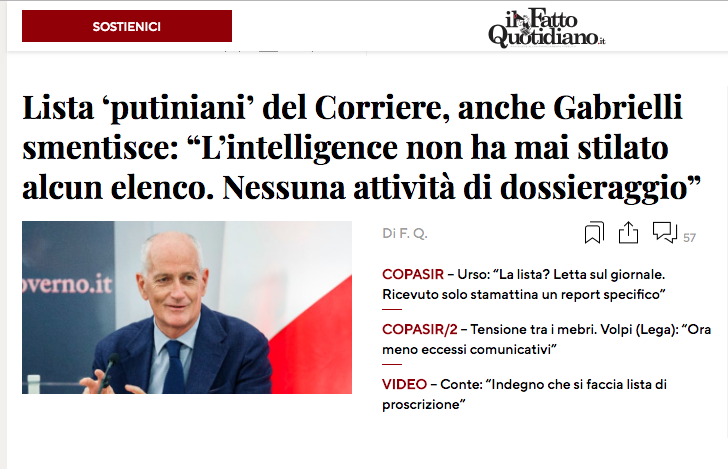Stop the presses: Somebody who worked for Donald Trump has written an upbeat, informative book. It’s a moral outrage and must be destroyed!
So says The New York Times about Jared Kushner’s White House memoir. Reviewer Dwight Garner, sounding like a high-school mean girl, not only trashes “Breaking History” as “soulless,” he mocks the author’s appearance, saying “Kushner looks like a mannequin, and he writes like one.” Twice he refers to Kushner’s dimples.
Did Garner ever mock the appearance of a black or female author, or anyone who worked for a Democrat? We can be certain he didn’t because if he had, he would have been fired.
The Washington Post was only slightly less savage, with its reviewer, Elizabeth Spiers, calling the book “a portrait of a man whose moral compass has been demagnetized.” Spiers confesses she was the editor of The New York Observer a decade ago when Kushner owned it.
After saying he “starved” the Manhattan weekly and “ran it as a vanity project,” she admits, “I hesitated to write about my previous work with him for fear of seeming unprofessional.”
She should have listened to her conscience because getting revenge by trashing her former boss’ book is indeed unprofessional.
The Trump fixation
In truth, those attacks and others in the leftist media are more political columns than book reviews, and the ultimate target isn’t Kushner or his book. It’s his father-in-law.
So once again and still, it’s all about Trump. His enemies can’t quit him and, in some circles, their hate and nastiness is what passes for intelligence.

They’re so blinded by rage they can’t appreciate Kushner’s engaging book for what it is: an up-close and personal account of consequential events, including the historic Abraham Accords.
Of course the book is self-serving. But has there ever been a White House memoir where the author sets out to make himself look useless and clueless? The species doesn’t exist.
Besides, the substantive insights Kushner offers about trade deals, criminal-justice reform and numerous other topics are leavened with tales of feuds that could fill a separate gossipy book. Steve Bannon, John Kelly and Rex Tillerson all found themselves on the wrong side of the author, and eventually Trump.
Former New Jersey Gov. Chris Christie gets especially rough treatment when Kushner, to my surprise, airs his family’s dirty laundry by telling how his father, Charles, ended up in federal prison. In the midst of a family business dispute run amok, Charles hired a hooker, videotaped his brother-in-law in the act, then sent the video to his sister, the man’s wife.
Christie, then a federal prosecutor, already was building a case of tax fraud against Charles and the sister was cooperating. Thus, sending her the hooker tryst was witness tampering.
Charles Kushner pled guilty to a slew of charges, served 14 months in prison and spent the rest of his two-year term in a halfway house.
Clashing with Christie

Jared nonetheless remains furious that Christie fought the two-year sentence, believing it was too little for what Christie called “loathsome, disgusting crimes.”
Christie was eventually bounced out of the Trump orbit, and Charles Kushner was pardoned by the president.
To be sure, Jared Kushner had a unique position in the Trump administration. Because the 45th president was a mercurial outsider who didn’t trust many people and churned through aides, he turned to his son-in-law to pitch in on a variety of issues.
So it was that Kushner became the president’s Swiss army knife, and his observations covering a spectrum of issues and people reveal Kushner to be, mostly, an America Firster, and give the book an important dimension.
For example, after helping to secure funding for the famous border wall, Kushner writes that “One of the greatest tragedies of the first two years of the Trump presidency, when we had majorities in both chambers of Congress, was that neither [Speaker Paul] Ryan nor [Senate Majority Leader Mitch] McConnell understood Trump.”
Later, he adds: “A Republican Congress wasted two years ducking the new leader of their party.”

His role in helping get COVID vaccines developed led him to another Eureka moment. He writes that Democrats waged a “pressure campaign” that got the FDA to add 18 days to its approval process, a delay that meant “Pfizer could not submit its application for approval until after the election.”
While important, those events were a prelude to his leadership on the remarkable Abraham Accords. As he describes it, the process that ultimately saw four Arab or Muslim nations normalize relations with Israel came about in an unplanned way.
Although Palestinians refused to meet with the administration after Trump recognized Jerusalem as Israel’s capital, Kushner devised a “Peace to Prosperity” plan that promised economic development for both Arabs and Jews. It would create a Palestinian state and allow Israel to annex the 30% of the West Bank containing Jewish settlements, some of which are actual cities. The plan emphasized that no citizens on either side would be uprooted from their homes.
Most Arab states rejected the plan, but others, especially the United Arab Emirates, were tired of Palestinian rejectionism and wanted to expand their quiet relations with Israel.
Kushner says Emirati officials offered a deal: If Israel held off on annexation, it would normalize relations with the Jewish state. Bahrain later made the same offer, and on Sept. 15th, 2020, Trump hosted a glorious signing ceremony on the South Lawn of the White House.
Diplomatic progress

Within two months, Morocco and Sudan signed similar agreements with Israel after deals with the White House on other issues.
Although there has been criticism from other players about Kushner’s version of private conversations, there is no denying that he was central to the historic breakthrough.
The book’s main drawback is that Trump comes across as one-dimensional. He is consistently smart and reasonable, a description that is fitting from a devoted son-in-law, but does not come close to capturing the president’s unruly personality and its impact. Even on the Jan. 6 Capitol riot, Trump is exempt from any blame.
Still, Kushner has made a major contribution to our knowledge of current events as well as the historic record. His critics want to cancel him because he refuses to join the chorus of authors who trashed Trump, but fair-minded readers will come away with a greater understanding of that singular presidency.
Hush ado over Eric and NYPD
Reader Ruth Cohen imagines the NYPD enforcing Mayor Adams’ demand that cops not congregate and chit-chat. She writes:
“Police Officer K reports to the Precinct Detective: ‘I overheard Police Officer A tell Police Officer B his wife’s recipe for cheesecake while they were on duty at the 72nd Street subway station. . . . And I have it on tape.’ ”
Putz 101 at Harvard
Stephen Maroutsis spots an absurdity — former Mayor Bill de Blasio getting a teaching gig at Harvard.
He writes: “Along with President Magoo’s student loan forgiveness, this will create a stampede for college admissions. Who wouldn’t want to learn at the knee of Professor Putz?”















